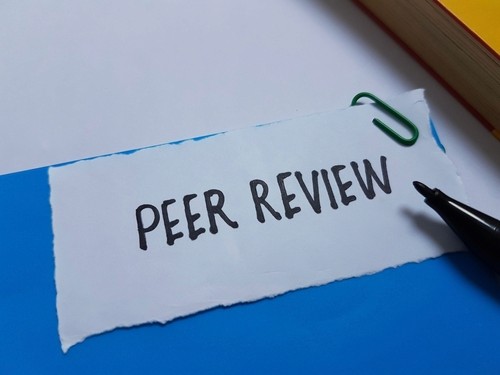Navigating Issues in Peer Review: Challenges and Considerations
Jul 17, 2024
Lois Parri
,
UK
Senior GRC Consultant
Peer review, while essential for maintaining the quality and credibility of academic research, is not without its challenges and controversies. As a cornerstone of scholarly publishing, peer review faces various issues that can impact its effectiveness and fairness. Let's explore some of the key issues related to peer review, the struggles of the bouncer whose job is letting the who’s who of academic papers in through the journal club door.
1) The more time they spend checking IDs, the longer the line gets - Peer review processes can be time-consuming, leading to significant delays in disseminating research findings. This is largely due to difficulty finding reviewers, as people tend not to prioritise unpaid and thankless jobs. Authors often face lengthy wait times between submission and publication, impeding the timely sharing of important discoveries. Journals and publishers are exploring strategies such as cascading review systems, preprint servers, and expedited review options to streamline the peer review process and reduce publication delays.
2) They let their mates jump the queue - One of the most significant challenges in peer review is the potential for reviewer bias. Often, the process fails to be anonymous (be this intentional or not), as with any field, established peers will recognise one another’s ongoing projects, which may lead to bias in either favouring the paper of a colleague or slowing down a competitor. Unconscious biases, whether based on author demographics, institutional affiliations, or research methodologies, can lead to inconsistent evaluations and unfair treatment of certain researchers or research topics. This highlights the need for explicit guidelines for ethical conduct in review and training to raise awareness of implicit biases.
3) Bouncers who aren’t trained know how to spot a fake ID - Despite its intended purpose, peer review does not guarantee the elimination of errors or misconduct in published research. Some studies have highlighted instances of flawed or retracted papers slipping through the peer review process. To enhance the quality and reliability of peer review, journals are adopting stricter guidelines for reviewers, implementing post-publication review mechanisms, and promoting transparency in reporting research outcomes.
4) Working late and taxing shifts on the weekend - The demand for peer reviewers often exceeds the available pool of qualified experts, leading to reviewer fatigue and burnout. Reviewers may struggle to balance their reviewing responsibilities with other professional commitments, resulting in delays and inconsistencies in the review process. Initiatives such as reviewer recognition programs, reviewer training workshops, and collaborative peer review platforms aim to alleviate the burden on reviewers and promote a more sustainable peer review ecosystem.
5) Hiding behind a big pair of shades - Peer review processes are traditionally conducted behind closed doors, with reviewers typically remaining anonymous. This lack of transparency can undermine accountability and hinder efforts to detect potential conflicts of interest or misconduct. Open peer review models, where reviewer identities and review reports are disclosed publicly, are gaining traction as a means of enhancing transparency and accountability in the peer review process.
Addressing the challenges associated with peer review requires collective efforts from researchers, publishers, institutions, and funding agencies. By promoting transparency, efficiency, and integrity in peer review practices, stakeholders can ensure that peer review remains a trusted mechanism for validating and disseminating scientific knowledge.
To close, I would like to acknowledge that I am only an early career researcher. I do not have years’ worth of submissions and rejections to speak about. But maybe I’ll revisit this blog in a few years, and I’ll have different insights to share - once the bouncer lets me in.
References:
Smith, R. (2006). Peer review: a flawed process at the heart of science and journals. Journal of the royal society of medicine, 99(4), 178-182.
Originally written in
English
